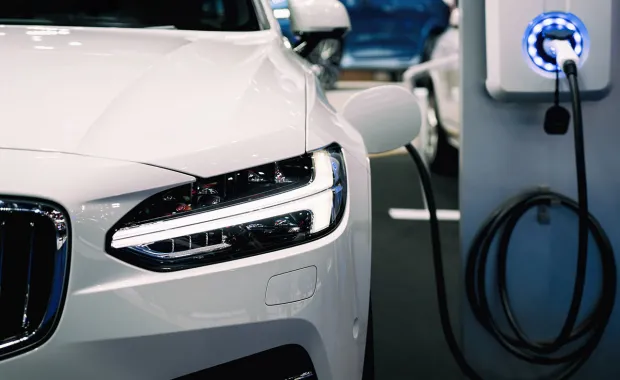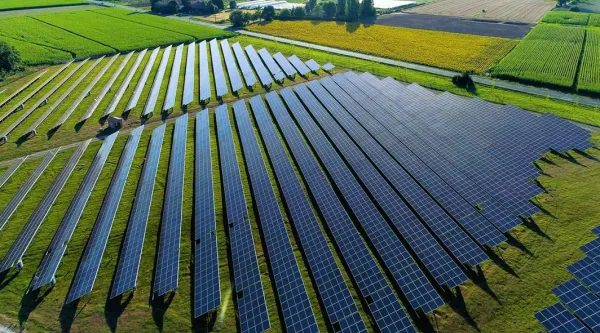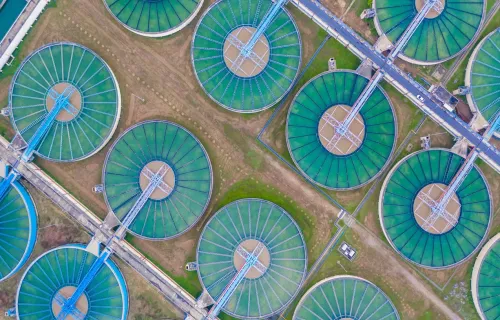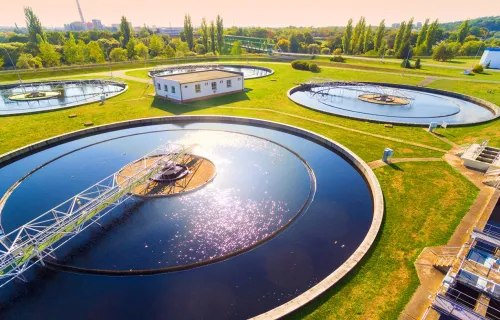As we head towards the end of the first week of COP26, it’s Energy Day.
I’ll declare my interest up front - I’ve spent my career working in and with the energy sector. So it should be no surprise that I see a successful energy transition as crucial to successfully addressing the climate crisis and keeping 1.5degC within reach.
My view is anchored in the fact that 73% of green house gas (GHG) emissions are due to the consumption of energy. Therefore, decarbonising energy is vital for all sectors of the economy to reach their net zero targets. But, energy takes many forms and its consumption underpins economic security and growth.
Whilst transport emissions (which constitute 16.2% of GHG emissions) cover rail, road, aviation and shipping, some of those emissions are easier to address than others. Addressing emissions from road transport (which makes to 11.9% of GHG emissions) already has solutions at various degrees of maturity; whilst aviation and shipping (constituting 3.6% of GHG emissions) require breakthrough solutions.
Decarbonisation of energy will require sustained investment, particularly in infrastructure. Indeed, according to the recent Financing Net Zero Roadmap by Vivid Economics, commissioned by the COP26 High-Level Champions, $16trn of investment is required in the electricity sector over the next decade if it is to reach net zero by 2050.
Global growth has been built on the consumption of carbon intensive energy sources since the industrial revolution. So the transition to net zero energy systems needs to be managed effectively to avoid unintended consequences, especially the transitional financial risks.
This will require governments, business, the investor community and civil society as a whole to collaborate in new ways to keep the common goal of limiting global temperature rise to 1.5degC alive. It will be crucial to achieve a common appreciation of the different cadences of change in consumer demand, electoral cycles, societal change and energy infrastructural investment.
The transformation of parts of the energy sector is already well under way. The adoption of renewable sources of electricity generation, the decarbonisation of gas and the inclusion of hydrogen are all helping to reduce the environmental impacts of energy use.
But, these decisions about how to decarbonise the energy system are changing its structure to be more decentralised, more federated.
Electricity generated by renewables, such as wind and solar, is by its nature intermittent because of its dependency on the weather, season and time of day. On the demand side, the electrification of transport, heat and battery storage is increasing demand volatility. This is changing fundamentally the dynamics of the energy systems.
If we, as consumers, are to continue to benefit from the levels of reliability of energy supply we have come to take for granted, then visibility across the systems is needed. This will help to ensure that operational decisions are taken in a timely manner. This visibility comes from increasing digitalisation of the energy infrastructure, generating the data and insight required to take the right operational decisions.
Therefore, the question becomes one of how far ahead-of-need will investment in digitalisation need to be made (especially given digital technologies tend to follow Moore’s Law with 2x improvement in performance and cost every 2 years (so the economics improve closer to need); whereas the cadence of improvement in no-and-low carbon technologies is around 6 years).
The need for digitalisation throughout the system is clear. From creating more intelligent infrastructure to engaging and empowering the consumer, digitalisation enables the energy transition to be fairer and just.
The incorporation of digital technology in the system will generate the data. But, digitalisation will ensure that data is accessible to those who need it and to keep the system reliable.
Access to data will open up the meaningful new choices for consumers about how they meet their energy needs. The integration of digital technologies, such as automation (through technologies such as machine learning and artificial intelligence), will make it simpler for us all to access the benefits of a decarbonised energy system and enable a fairer energy transition.
The UK’s Energy Data Taskforce set a great baseline and direction for this. The Energy Digitalisation Taskforce is taking this to the next level. It will deliver how access to data can be operationalised to deliver a truly digitalised energy system that keeps the system reliable and delivers on the promise of those meaningful, new choices for consumers.
These transitions, moving away from carbon intensive fossil fuel sources and towards innovative no-and-low carbon solutions, aren’t just impacting the energy sector.
Transitions in automotive manufacturing and the associated supply chains are enabling the electrification of transport. This creates opportunities for new, more service based transport and mobility business models.
In turn, this is changing the nature of the fuelling market. Filling stations are shifting from pumping petrol and diesel to fast electricity chargers. The opportunities for drivers to charge at home or in car parks creates the opportunity for new business models in the fuelling market and the potential to offer meaningful new choices to drivers about how they fuel their vehicles.
And, of course, the market structures and regulations need to adapt to enable these new business models and deliver new choices for consumers to experience the benefits of the climate transition.
Doing the right thing for the planet and future generations will no longer be a trade off, but the economically sensible choice and the easiest thing to do.
Collaboration and innovation will underpin delivering on net zero commitments, so if you’d like to be part of the discourse, or to find out more about the role of digitalisation in the energy transition, drop me a line.






